| | | OFFLINE | | Post: 22.391
Post: 5.016 | Registrato il: 28/08/2005
Registrato il: 20/01/2009 | Administratore | Utente Master | |
|
 GENERAL AUDIENCE TODAY
GENERAL AUDIENCE TODAY
Catechesis on St. Alphonsus Liguori (1696-1787)
Doctor of the Church
At the General Audience today, The Holy Father devoted his catechesis to St. Alphonsus Maria de Liguori, now the 32nd of the 33 Doctors of the Church that he has spoken about in his Wednesday audiences - most of them in his earlier catechetical cycles about the great Christian figures from early Christianity to the Middle Ages.
He went on to complete the presentation with the Doctors of the Counter-Reformation - Terssa of Avila, Peter Canisius, John of the Cross, Ronert Bellarmine, Francis de Sales and Lawrence of Brindisi. St. Alphonsus Liguori in the 18th century and St. Therese of Lisieux in the 19th century complete the roster of the Doctors of the Church so far.
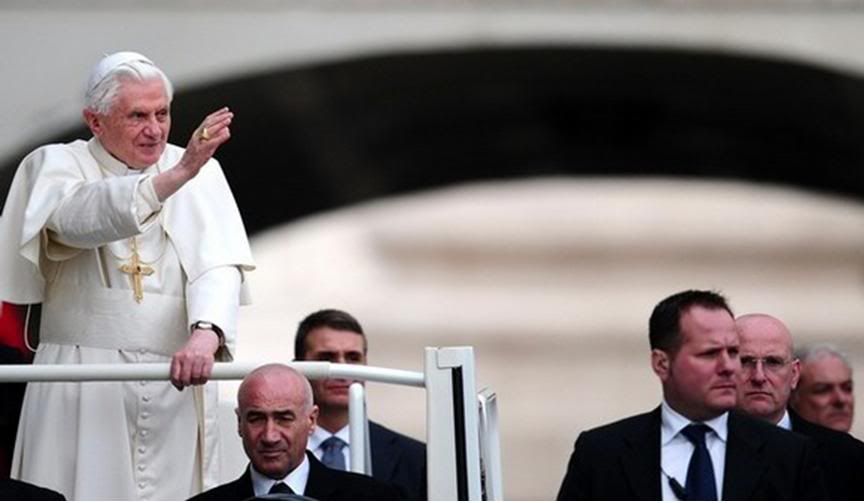

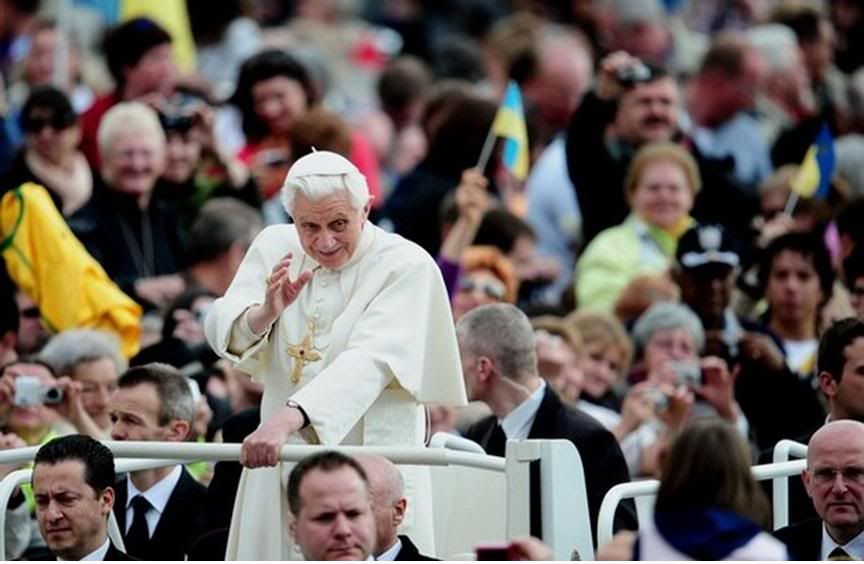
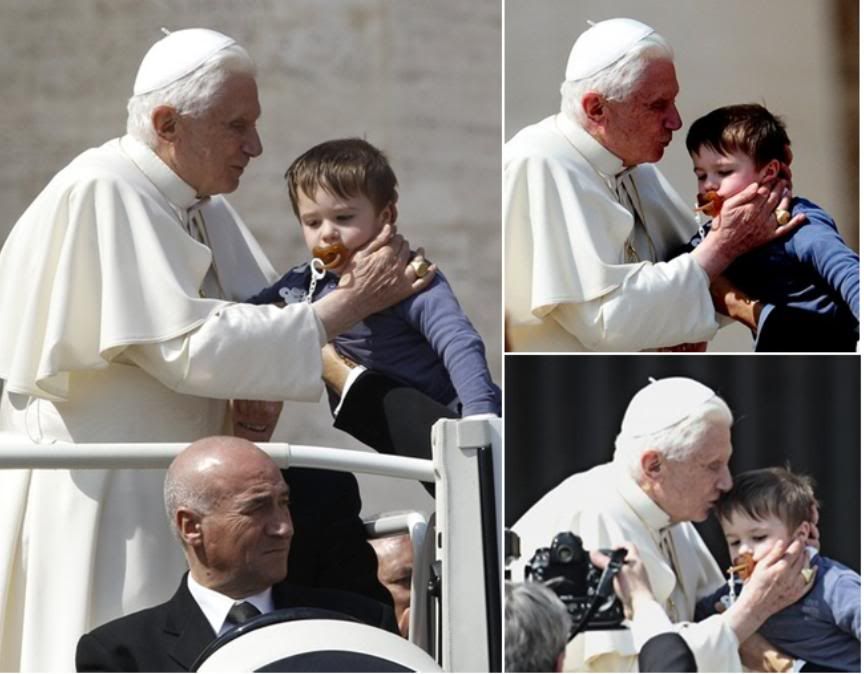 Pope calls for
Pope calls for
caring, faithful confessors

March 30, 2011
Continuing his cycle of lessons on the Doctors of the Church, Pope Benedict XVI told believers Wednesday that prayer and confession are the best antidotes to our era marked by “signs of loss of conscience and morality”.

Outlining the legacy of an 18th century Neapolitan Saint, Alphonsus Liguori, during his Wednesday catechesis, the Holy Father spoke of the obvious “lack of esteem” for the sacrament of confession among Catholics today and urged priests to adopt a more “charitable, understanding and gentle attitude” towards penitents while always remaining faithful to Catholic moral teaching.
Here is how he synthesized the catechesis in English:
Our catechesis today deals with Saint Alphonsus Liguori, an outstanding eighteenth-century preacher, scholar and Doctor of the Church. Alphonsus left a brilliant career as a lawyer to become a priest, and greatly contributed to the renewal of the Church in his native Naples.
He began as a missionary among the urban poor, gathering small groups for prayer and instruction in the faith. Broadening his pastoral outreach, he founded the Congregation of the Most Holy Redeemer – the Redemptorists – as a group of itinerant missionaries.
Alphonsus’s pastoral zeal also found expression in his moral teaching, which emphasized divine mercy and the relationship between God’s law and our deepest human needs and aspirations. His many spiritual writings, marked by a deep Christological and Marian piety, stressed the practice of prayer, especially before the Blessed Sacrament.
May this great Doctor of the Church, venerated also as the patron of moral theologians, help us to respond ever more fully to God’s call to grow in holiness, and inspire in priests, religious and laity a firm commitment to the new evangelization.
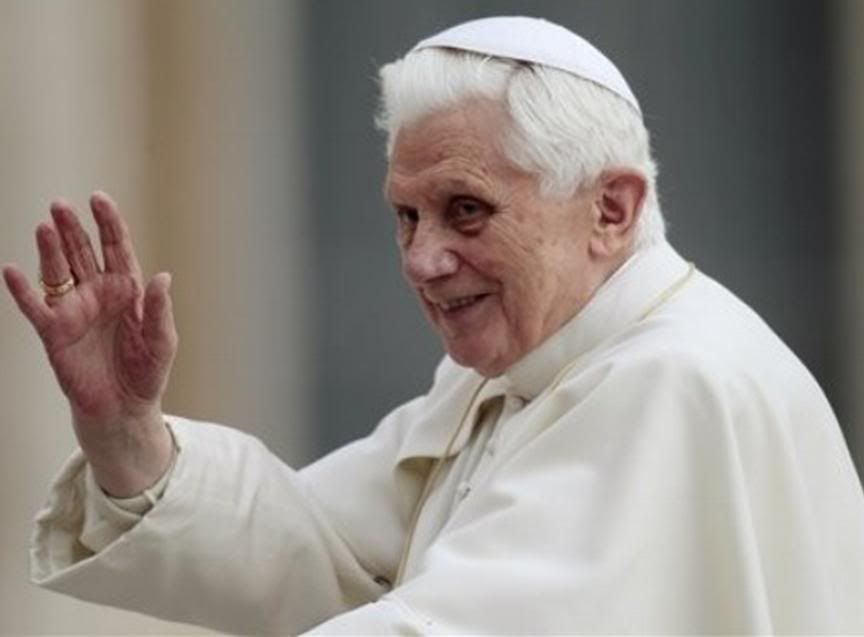
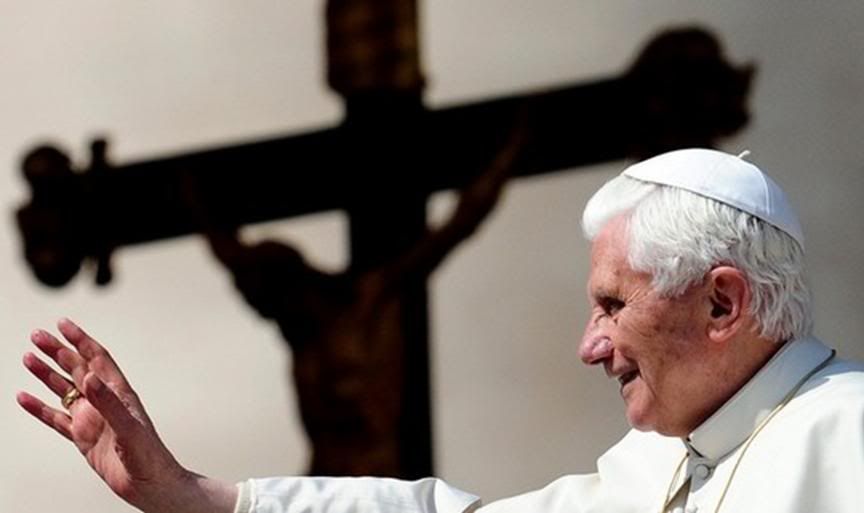
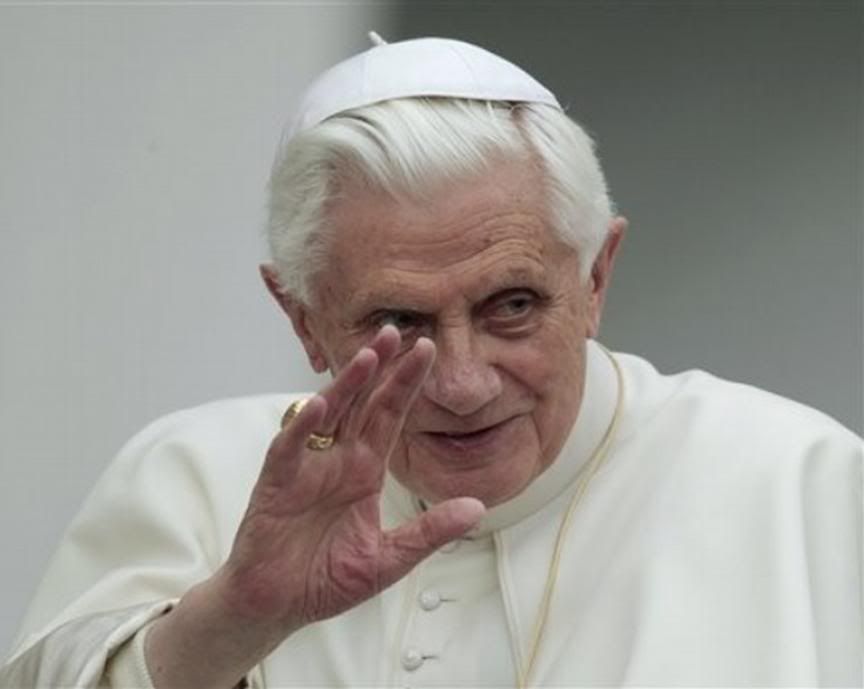
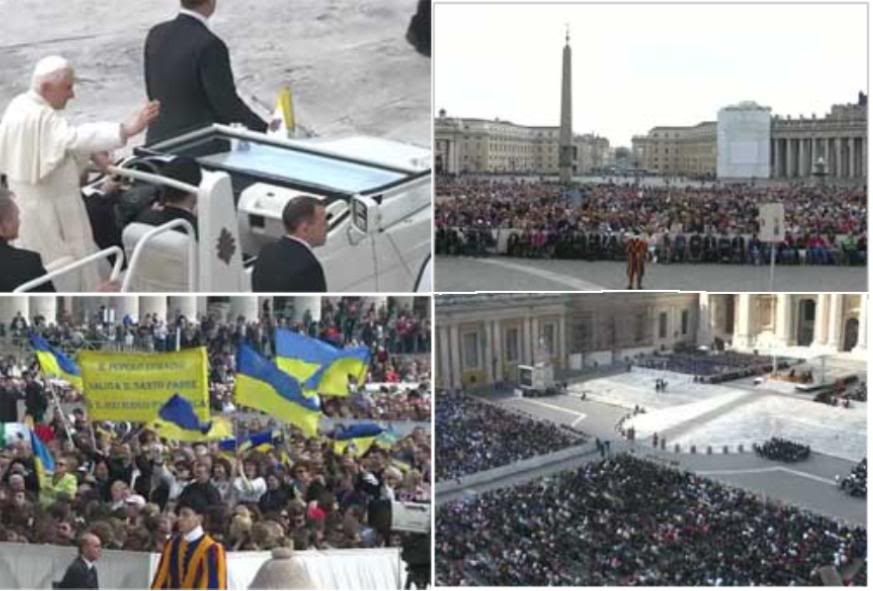
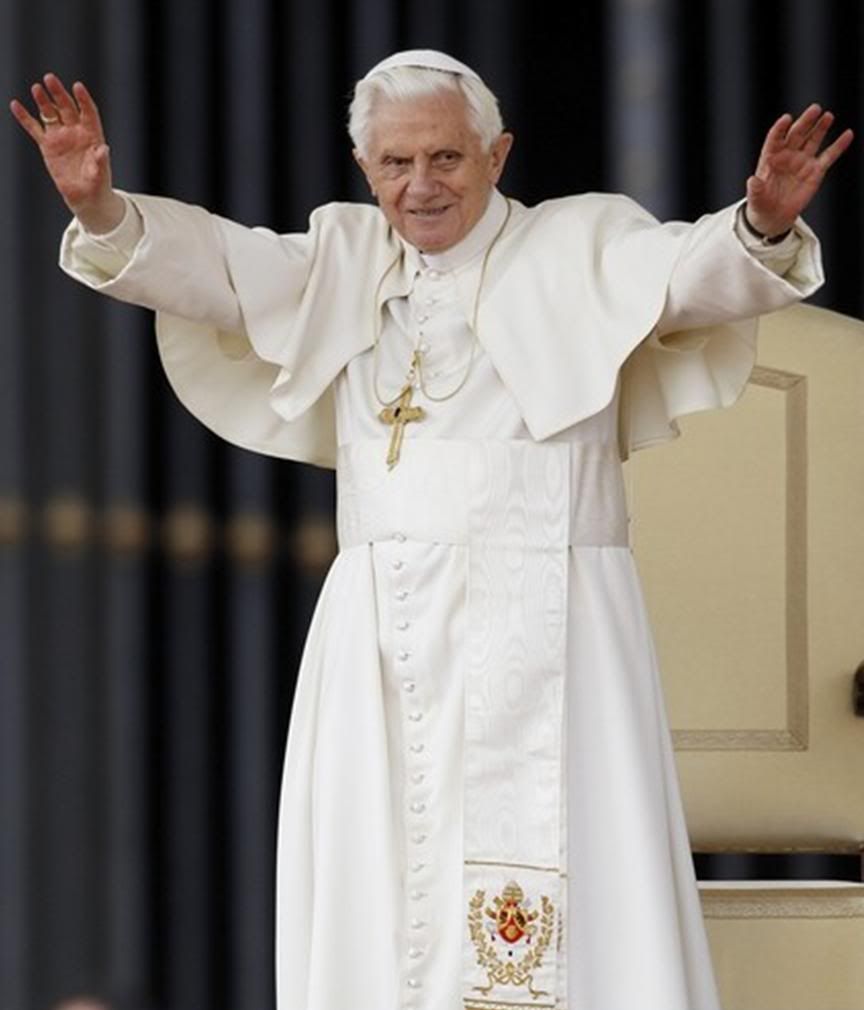
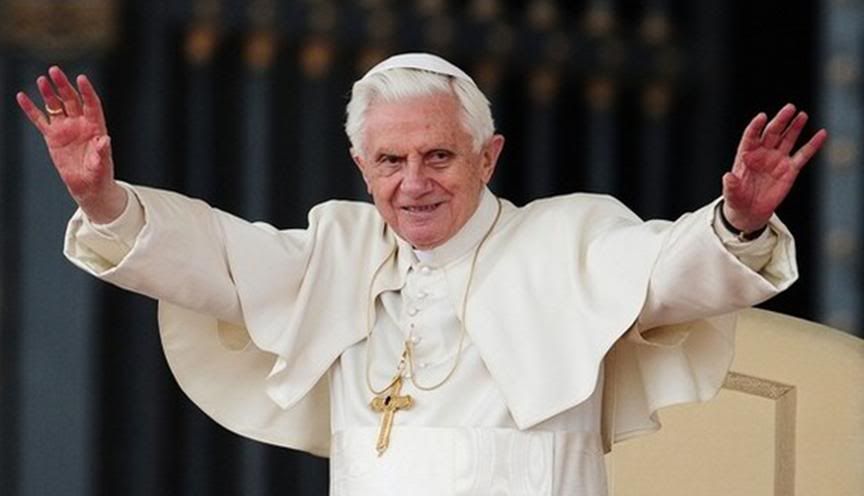
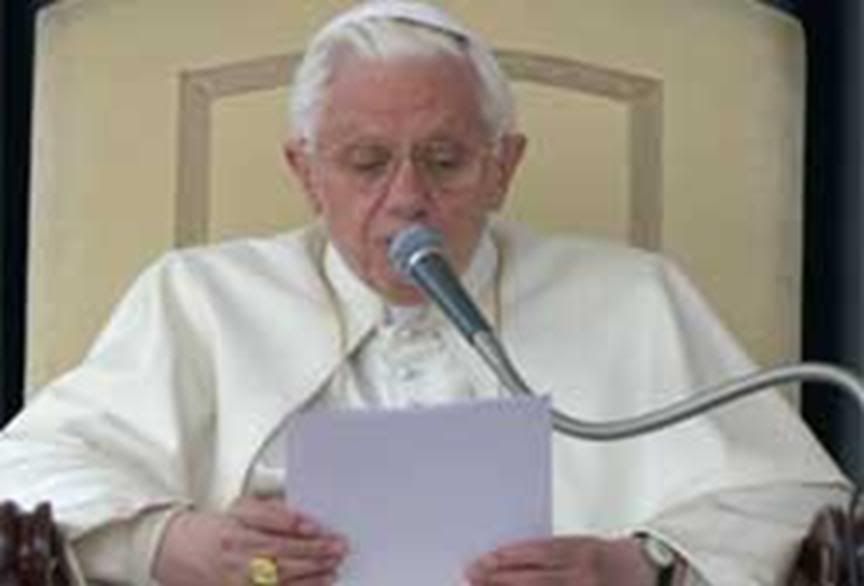 Here is a full translation of today's catechesis:
Here is a full translation of today's catechesis:
 Third from left; The saint's founder statue in St. Peter's Basilica.
Today, I wish to present to you the figure of a Saint and Doctor of the Church to whom we are much indebted because he was a distinguished moral theologian and a teacher of spiritual life for all, especially for the simple folk. He is also the author of the lyrics and music for one of the most popular Christmas carols in Italy: 'Tu scendi dalle stelle' {You have descended from the stars).
Third from left; The saint's founder statue in St. Peter's Basilica.
Today, I wish to present to you the figure of a Saint and Doctor of the Church to whom we are much indebted because he was a distinguished moral theologian and a teacher of spiritual life for all, especially for the simple folk. He is also the author of the lyrics and music for one of the most popular Christmas carols in Italy: 'Tu scendi dalle stelle' {You have descended from the stars).
Born to a noble and rich Neapolitan family, Alfonso Maria de' Liguori was born in 1696. Endowed with outstanding intellectual qualities, he obtained a degree in civil and canon law at age 16. He became the most brilliant attorney in the courts of Naples: for eight years, he won all the cases he defended.
However, in a soul thirsting for God and desirous of perfection, the Lord led him to understand that he was called to another vocation. And indeed, in 1723, indignant at the corruption and injustice which polluted the courts, he abandoned his profession - and with it, wealth and success - deciding to become a priest, despite his father's opposition.
He had the best teachers, who introduced him to the study of Sacred Scripture, the history of the Church, and mysticism. He acquired vast theological culture, which he put to fruitful results years later when he would begin to write.
He was ordained a priest in 1726, and for the exercise of his ministry, he joined the diocesan Congregation for Apostolic Missions. Alfonso began evangelizing and catechetical activity among the most humble strata of Neapolitan society, to whom he loved to preach, and whom he instructed in the essential truths of the faith.
Not a few of these persons, poor or of modest means, to whom he addressed himself, had been dedicated to vice or had been involved in criminal activity. Patiently, he taught them to pray, encouraging them to change their way of life for the better.
Alfonso obtained excellent results: in the poorest neighborhoods of the city, many groups of persons gathered every evening in private homes or shops to pray and to meditate on the Word of God, under the guidance of catechists who had been trained by Alfonso and other priests, who also regularly visited these prayer groups.
When, at the request of the Archbishop of Naples, these prayer meetings started to be held in the chapels of the city, they came to be known as 'cappelle serotine' (evening chapels). These were a true and proper source of moral education, social healing, and reciprocal aid among the poor. Robberies, duels and prostitution almost disappeared.
Even if the social and religious context of St. Alfonso's time was very different from ours, the evening chapels seem to be a model of missionary activity which can inspire us even now for a 'new evangelization', particularly among the poorest, and to build human coexistence that is more just and more fraternally supportive.
Priests are entrusted with the task of spiritual ministry, while well-trained laymen can be effective Christian animators, authentic evangelical yeast in the bosom of society.
After having considered leaving to evangelize pagan peoples, Alfonso, at age 35, made contact with the peasants and shepherds in the inner regions of the Kingdom of Naples. Struck by their religious ignorance and the state of abandonment towards which they were headed, he decided to leave the capital and dedicate himself to these persons who were spiritually and materially poor.
In 1732, he founded the religious Congregation of the Most Holy Redeemer, which he placed under the protection of Bishop Tomaso Falcoia, and of which he subsequently became Superior-General.
These religious, led by Alfonso, were authentic itinerant missionaries, who reached the remotest villages to exhort the faithful to conversion and to perseverance in Christian life, especially through prayer.
Even today, the Redemptorists, who are found all over the world, continue this mission of evangelization. I think of them with gratitude, exhorting them to always remain faithful to the example of their sainted founder.
Esteemed for his goodness and pastoral zeal, in 1762, Alfonso was named bishop of Sant'Agat dei Goti, a ministry which, with the concession of Pope Pius VI, he left in 1787, because of the many illnesses that afflicted him.
The same Pope, upon learning of Alfonso's death following many sufferings, exclaimed, "He was a saint!" He was not wrong. Alfonso was canonized in 1839, and in 1871, he was declared a Doctor of the Church, a title given to him for many reasons.
First of all, because he had offered a wealth of teaching in moral theology, which adequately expresses the Catholic faith, to the point that he was later proclaimed by Pope Pius XII as the 'Patron of all confessors and moralists'.
In his time, a very rigorist interpretation of moral life was widespread, because of the influence of Jansenist mentality which, instead of nourishing trust and hope in God's mercy, fomented fear and presented a God who was harsh and severe, far from the face that Jesus had revealed to us.
St. Alfonso, especially in his major work entitled Teologia Morale, proposed a balanced and convincing synthesis between the demands of the law of God, which are carved into our hearts, fully revealed by Christ, and authoritatively interpreted by the Church, and the dynamism of man's conscience and freedom, which in adhering to truth and goodness, allows personal maturation and realization.
To the pastors of souls and confessors, Alfonso urged faithfulness to Catholic moral doctrine, while assuming a charitable, understanding and tender attitude, so that penitents can feel themselves accompanied, sustained, and encouraged in their path of faith and Christian living.
St. Alfonso never tired of repeating that priests are a visible sign of the infinite mercy of God, who forgives and enlightens the mind and the heart of the sinner so that he repents and changes his life.
In our time, when there are clear signs of loss of moral conscience - we must acknowledge this - and of a certain lack of esteem for the Sacrament of Confession, St. Alfonso's teaching continues to be greatly relevant.
Along with his works of theology, St. Alfonso composed many other writings, intended for the religious formation of the people. His style is simple ans pleasant. Read and translated into many languages, the works of St. Alfonso have contributed to shape popular spirituality in the last two centuries.
Some of them are texts that should be read today with great profit, such as Eternal maxims, The glory of Mary, The practice of loving Jesus Christ, this last representing the synthesis of his thought, and his masterwork.
He insisted very much on the need for prayer which allows us to be open to divine grace so we may comply daily with the will of God and achieve our own sanctification.
About prayer, he wrote: "God does not deny anyone the grace of prayer, with which one obtains the help to conquer every concupiscence and temptation. I say, I reply and will always reply as long as I have life, that all our salvation lies in prayer".
From this, his famous axiom: "He who prays will be saved" (Del gran mezzo della preghiera e opuscoli affini. Opere ascetiche II, Roma 1962, p. 171).
In this regard, I am reminded of an exhortation by my predecessor, the Venerable Servant of God John Paul II: "Our Christian communities should become schools of prayer... Therefore, education in prayer must become a required activity in every pastoral program" (Apost. Letter Novo Millennio ineunte, 33,34).
Among the forms of prayer fervently urged by St. Alfonso, he highlighted visits to the Blessed Sacrament, or Adoration, as we call it today - brief or prolonged, personal or communitarian - before the Eucharist.
"Certainly", Alfonso wrote, "among all the devotions, the act of adoring Jesus in the Sacrament is the first after the Sacraments which is dearest to God, and the most useful for us... Oh, what a beautiful delight it is to be in front of an altar with faith...and to present our own needs, as a friend does to another in whom he has full trust!" C](Visits to the Most Blessed Sacrament and the Most Blessed Mary for every day of the month - Introduction).
Alfonsian spirituality is, in fact, eminently Christological, centered on Christ and his Gospel. Meditation on the mystery of the Incarnation and the Passion of Christ was a frequent subject of his preaching - the events in which Redemption is offered 'copiously' to all men.
And precisely because it was Christologic, Alfonso's piety was also exquisitely Marian. Most devoted to Mary, he illustrates her role in the story of salvation: partner in the Redemption and Mediatrix of grace, Mother, Advocate and Queen.
Moreover, St. Alfonso affirmed that devotion to Mary would be of great help to us at the moment of death. He was convinced that meditation on our own eternal destiny, on our calling to participate for always in the beatitude of God, as also in the tragic possibility of damnation, contributes so that we may live with serenity and commitment, and face the reality of death while always keeping our full confidence on the goodness of God.
St. Alfonso Maria de' Liguori is an example of the zealous pastor, who won over souls by preaching the Gospel and administering the Sacraments, combined with a way of action marked by gentle goodness, born out of his intense relationship with God, who is Infinite Goodness.
He had a realistically optimistic view of the resources for good that the Lord gives every man, and he gave importance to the affections and sentiments of the heart, besides the mind, in order to love God and one's neighbor.
In conclusion, I wish to recall that our saint, like St. Francis de Sales, of whom I spoke a few weeks ago, insisted on saying that holiness is accessible to every Christian - to "...the religious as religious, the layman as layman, the priest as priest, the spouse spouse, the merchant as merchant, the soldier as soldier, and so on, with every other state" (Pratica di amare Gesù Cristo. Opere ascetiche I, Roma 1933, p. 79).
Let us thank the Lord who, in his Providence, raises saints and doctors of the Church, in different times and places, who speak the same language to invite us to grow in faith and to live with love and joy our being Christians in the simple actions of everyday, in order to walk along the road of holiness, on the road towards God and towards true joy. Thank you.
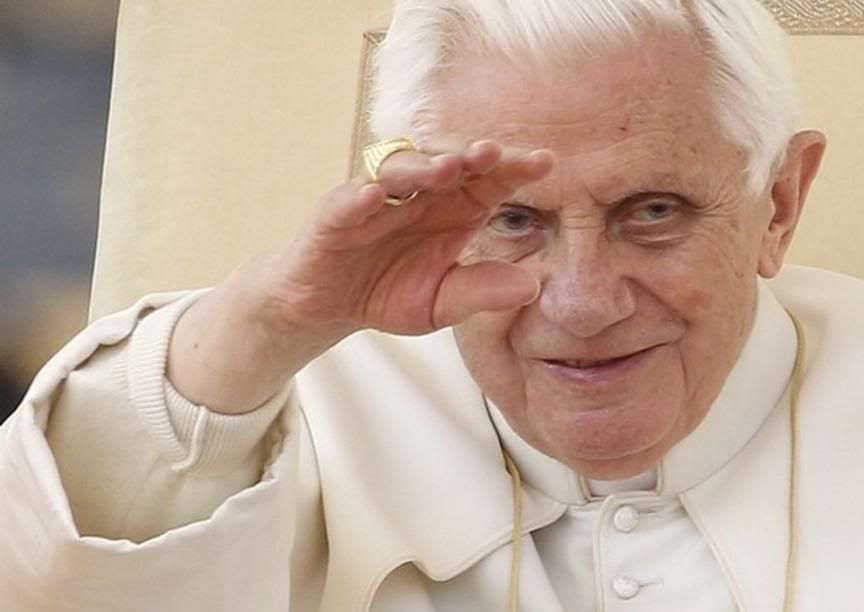
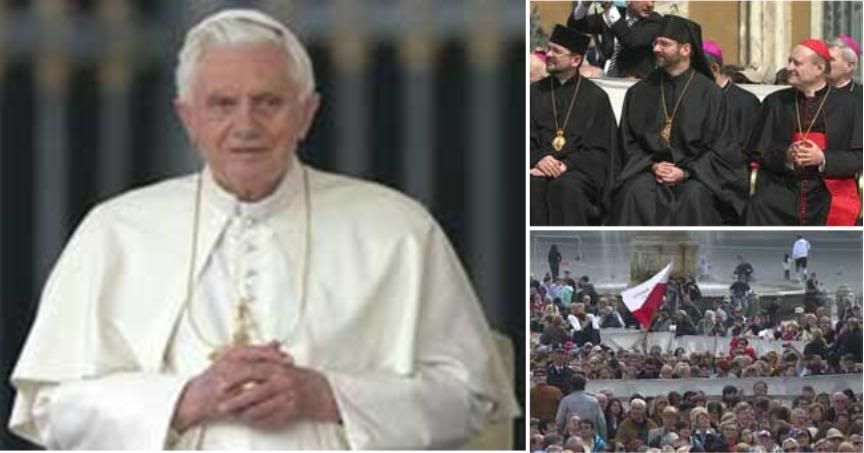
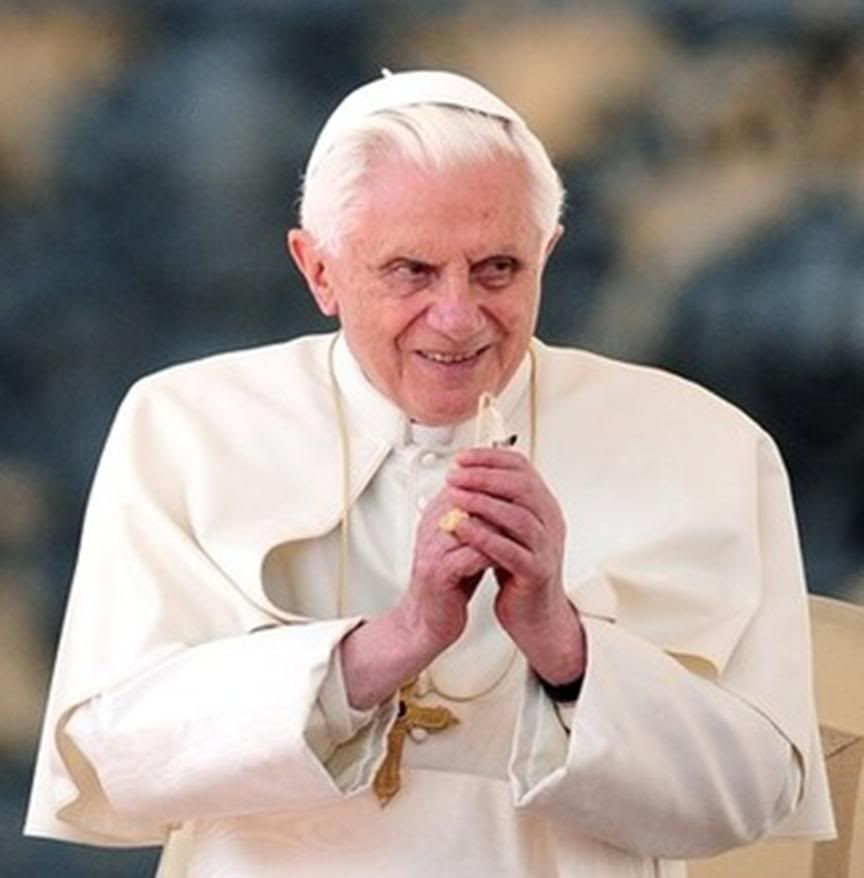
[Modificato da TERESA BENEDETTA 30/03/2011 20:48] |